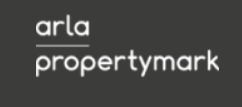A shocking 53.4% of house fires are caused by electrical hazards, according to a recent report from the electrical trade body NICEIC—making electrical safety a top priority for landlords. If you’re renting out property, here’s everything you need to know to keep your tenants safe and stay compliant with the law.
Landlords’ Responsibilities for Electrical Safety
As a landlord, you're legally responsible for the electrical safety of the permanent wiring in your property, including sockets, light fittings, and fuse boxes. You're also responsible for the safety of any electrical appliances you provide, such as white goods, heaters, and lighting.
While you’re not responsible for appliances that belong to your tenants, it’s still wise to be aware of the safety risks they might pose. A faulty toaster or overloaded extension lead can still pose a threat to your property—and your tenants.
Electrical Safety Actions Every Landlord Should Take
1. Get the Electrical System Professionally Tested
By law, all rented homes must have their electrical installations inspected and tested at least every five years by a qualified and competent electrician.
After each inspection, you must provide tenants with a copy of the Electrical Installation Condition Report (EICR). This document may also be required if you’re applying for a property licence. electrical-safety-standards-in-the-private-rented-sector-guidance-for-landlords-tenants-and-local-authorities/guide-for-landlords-electrical-safety-standards-in-the-private-rented-sector
Tip: Schedule inspections well ahead of time to avoid last-minute issues with renewals or tenant move-ins.
2. Conduct PAT Testing for Portable Appliances
If your property includes appliances such as kettles, microwaves, toasters, or portable heaters, it’s a good idea to have them Portable Appliance Testing periodically. It helps prove you’ve taken reasonable steps to ensure tenant safety. An electrician or a PAT testing service can carry this out quickly and affordably.
3. Respond Promptly to Tenant Concerns
If a tenant raises concerns about any electrical system or appliance in the property.
Common warning signs include:
· Appliances overheating or emitting a burning smell
· Buzzing noises from sockets or switches
· Tripping electrics
· Flickering lights
These could indicate faulty wiring or more serious hazards. Never ignore these warnings—prompt
4. Carry Out Regular Property Inspections
Routine property inspections are a vital part of good landlord practice. You don’t need to touch or test anything—but keep an eye out for the following:
· Damage to consumer units (fuse boxes)
· Burn marks or discolouration around sockets and switches
· Cracks, loose fittings, or buzzing noises
· Frayed or exposed wires on appliances
· Scorch marks on cables or plugs
With regular inspections, professional testing, and quick responses to issues, you can keep your property safe and compliant.
Need help managing your rental property? From safety checks to legal requirements, our expert Lettings and Property management teams has it covered.
Get in touch with us today to see how we can help you - 020 3000 6787
Looking to Sell or Let your property?
Our team of local experts are here to help you.



